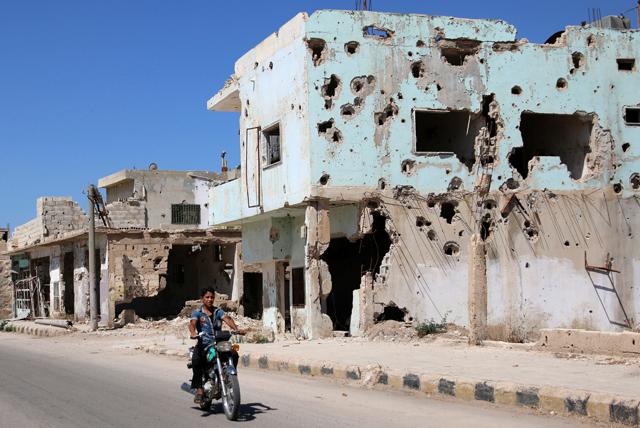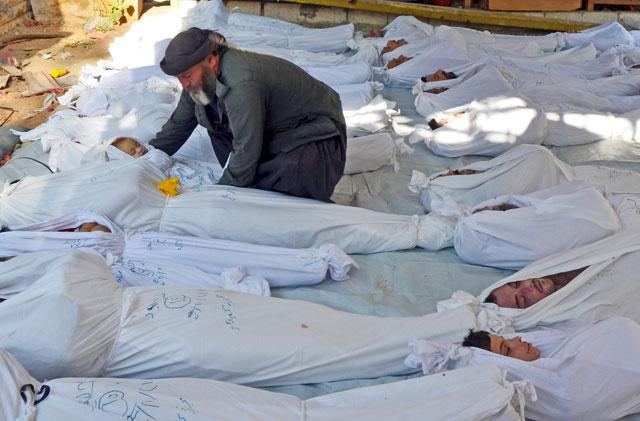You are here
Syrian government denies UN chemical attack report
By Reuters - Sep 09,2017 - Last updated at Sep 09,2017

A man rides on a motorbike past damaged buildings in the rebel-held city of Inkhil, west of Daraa, Syria, on Thursday (Reuters photo)
BEIRUT — The Syrian government has denied a UN report accusing it of a sarin attack in April that killed scores of people, state media said on Friday.
Damascus sent the United Nations a letter "asserting that Syria has not and will not use toxic gases against its people because it does not have them in the first place", state news agency SANA said.
UN war crimes investigators said this week that Syrian forces have used chemical weapons more than two dozen times during the six-year conflict.
The UN Commission of Inquiry on Syria said a government warplane dropped sarin on Khan Sheikhoun in insurgent-held Idlib province in April, killing more than 80 civilians. The attack prompted a US missile strike on a Syrian government air base.
A fact-finding mission of the Organisation for the Prohibition of Chemical Weapons (OPCW) previously identified the attack as containing sarin, an odourless nerve agent. But that conclusion did not assign blame.
The Syrian government has said before that air strikes in the town of Khan Sheikhoun hit a weapons depot belonging to rebel factions. The UN investigators dismissed this.
President Bashar Assad's government has repeatedly denied using chemical weapons in the war and says it only targets militants.
In 2013, hundreds of civilians died in a sarin gas attack in the suburbs of the capital Damascus, in an attack that Western states blamed on Assad's government. Damascus blamed rebels.
In the wake of the atrocity, the United States and Russia brokered a deal under which Syria joined the international Chemical Weapons Convention. Syria declared it had 1,300 tonnes of chemical weapons or industrial chemical stocks, surrendering it to the international community for destruction.
UN-OPCW investigators have said that the government continued to use chlorine, which is widely available and hard to trace. Chlorine is not a banned substance, but the use of any chemical is banned under the 1997 Chemical Weapons Convention.
A series of UN-OPCW investigations found that various parties in the war have used chlorine, sulfur mustard gas and sarin.
Related Articles
AMSTERDAM — The world's chemical weapons watchdog opened an investigation on Sunday into attacks in the besieged, rebel-held Syrian region o
THE HAGUE — The Syrian government’s chemical weapons stockpile has been linked for the first time by laboratory tests to the largest s
THE HAGUE — The global chemical arms watchdog Thursday "overwhelmingly" rejected a Russian-Iranian move to launch a new investigation into a














